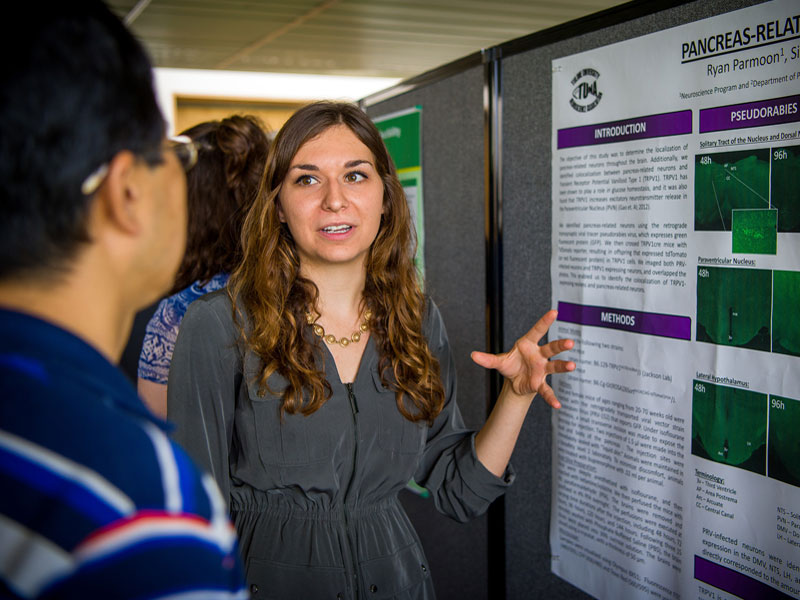
Research at the Tulane Brain Institute is centered around research themes built on identified strengths that are advanced by transdisciplinary teams made up of Brain Institute faculty, postdocs, and students from across the University. Themes are supported through investment in infrastructure and programmatic initiatives with the goal of developing physical and intellectual clusters of research excellence.
Memory & Cognition
Brain Institute scientists are exploring brain mechanisms that support memory and cognition. Researchers are examining how memories are made and stored in the brain and how these processes change during normal and pathological aging. Ongoing research into neural processes underlying typical and atypical cognitive development and function has implications for understanding autism, attention deficit hyperactivity disorder, and schizophrenia.
Neurodegenerative Disease, Neural Injury, & Repair
Brain Institute scientists are conducting research on neurodegenerative disease and neural injury resulting from trauma or stroke. Researchers are examining mechanisms underlying age-related dementias including Alzheimer's disease. Experiments are underway testing the use of adult stem cells as potential avenues for treatment of neurodegenerative diseases such as multiple sclerosis. The work of Tulane neuroscientists is leading to new discoveries regarding risk factors and treatments of stroke.
Hormone-Brain Interactions
Brain Institute scientists are exploring the impact of hormones on the brain. Research investigating stress and the effects of stress hormones on the brain has implications for understanding depression, anxiety disorders, and posttraumatic stress. The study of how hormones such as estrogens and androgens impact the brain across the lifespan may lead to the understanding of mechanisms by which males and females have different biological vulnerabilities to brain disorders.
Brain-Body Health
Brain Institute scientists are exploring the role of the brain in health and disease. Scientists are examining how the nervous system is involved in the regulation of the body's glucose levels and related implications for treating diabetes. Researchers are investigating the role for the brain in the development and treatment of hypertension and obesity. Tulane neuroscientists have developed a new drug to treat pain that may be a safer, non-addictive alternative to current pain medications.
